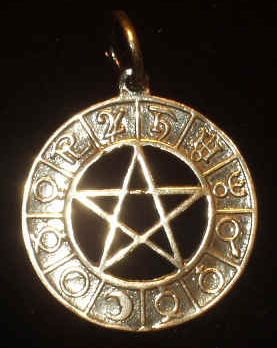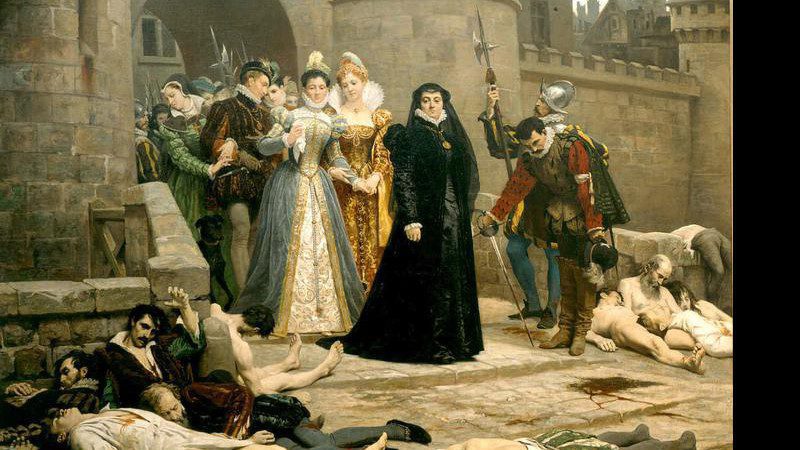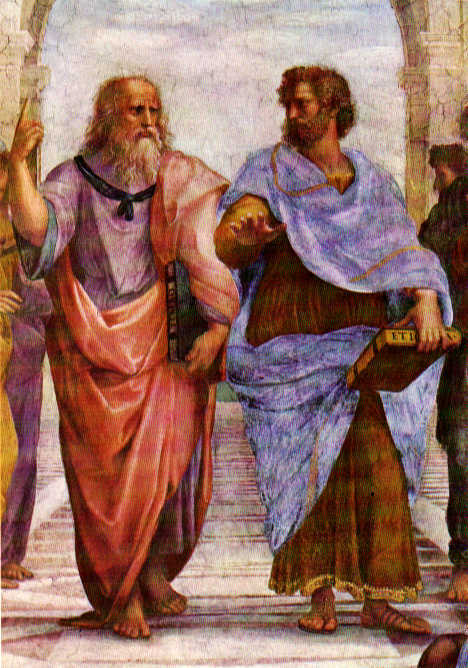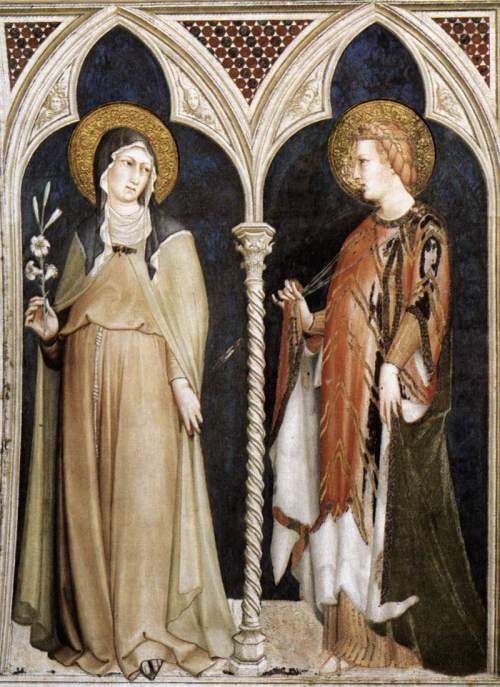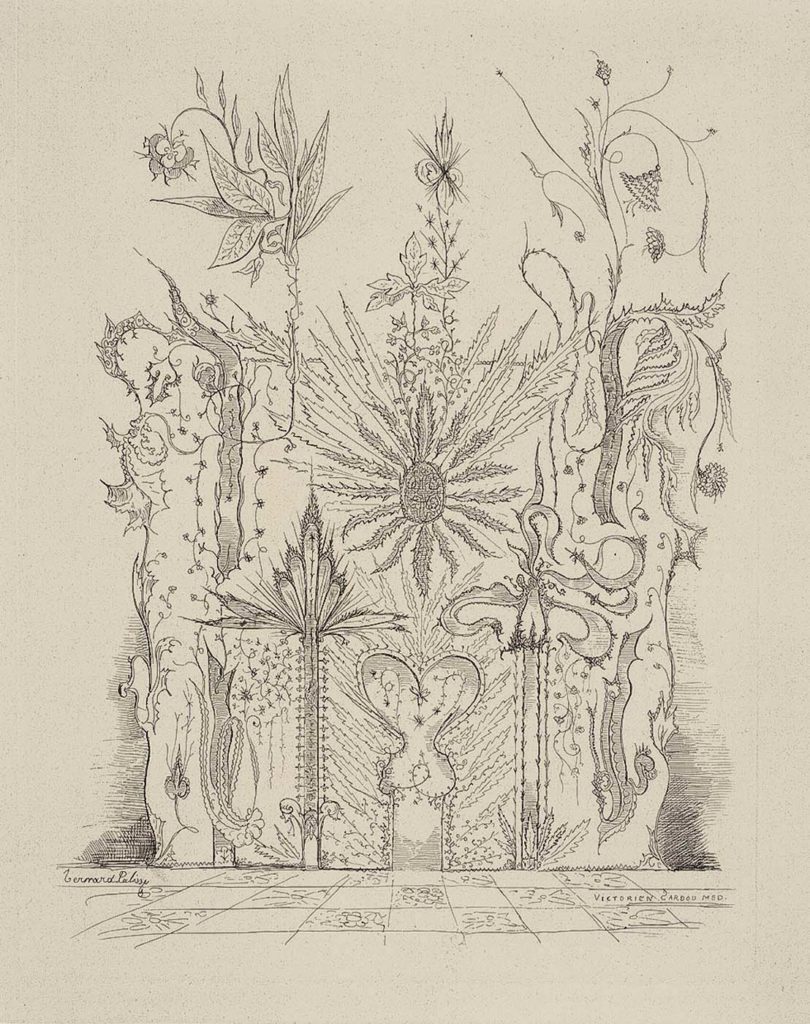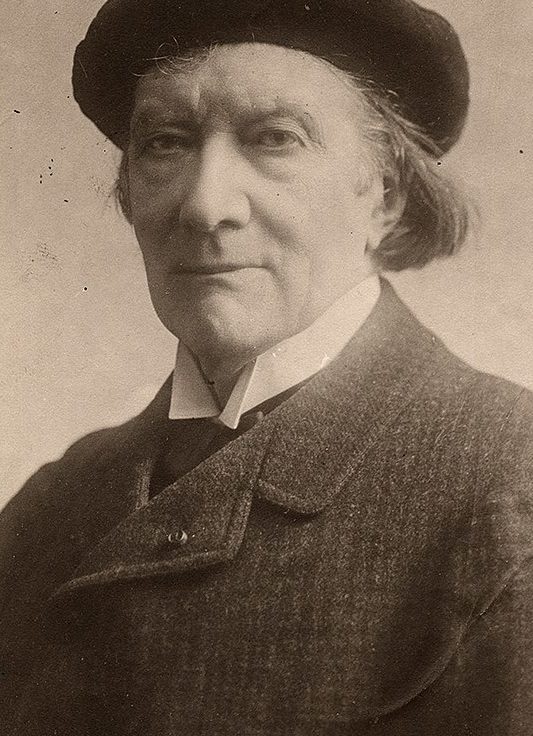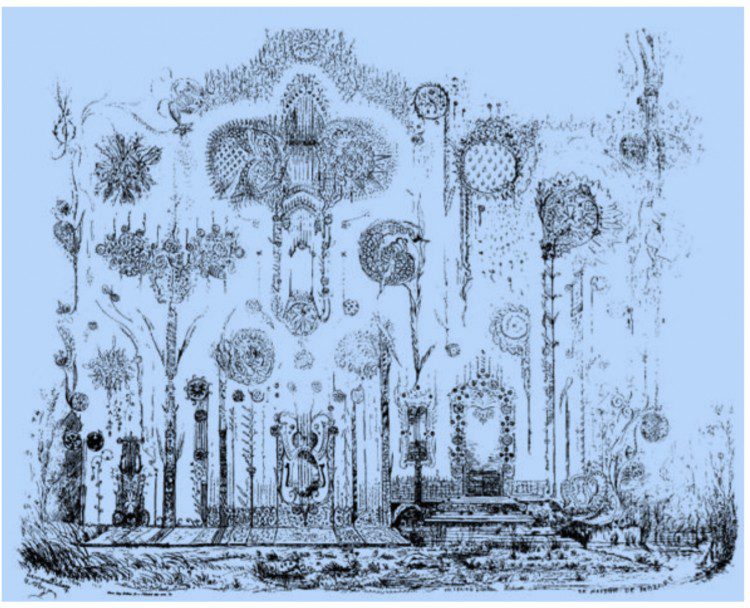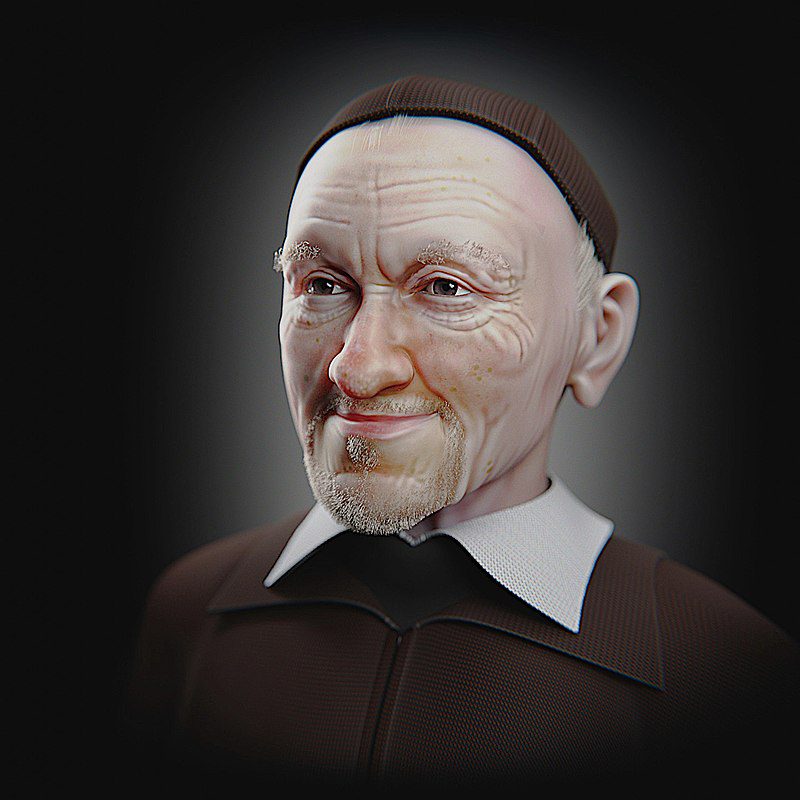Suicide For Love
In this September 1858 edition of RE, Kardec presents the case of Louis G., a shoemaker officer, who seven or eight months earlier had committed suicide at the door of his girlfriend, Victorine R., who was a seamstress of boots.
Once, Victorine R. and Louis G, who were already engaged, got into a deep argument for a trivial reason, to the point that Louis got up and promised never to return.

The next day, from cold head, the boy went to apologize, but was unsuccessful: Victorine R. refused to reconcile, despite her despair.
After a few more days, thinking that his beloved would be reasonable, Louis went to try again to apologize, to which he was again rejected. At his beloved's door, he said to her: "Then farewell, you wicked one!" finally exclaimed the poor boy, “Farewell forever! Find a husband who wants you as much as I do!” – and plunged his shoemaker's knife into his chest, exhaling right there.
This article on the history of Louis G and Victorine R. appeared in Siècle on April 7, 1858.
Seeking to obtain moral teachings about the fact, on August 10, 1858 Kardec evokes São Luís:
1. ─ Does the girl, the unintentional cause of her boyfriend's death, have responsibility? ─ Yes, because I didn't love him.
Comment: This answer causes initial strangeness. Is anyone to blame for not loving someone else? Let's understand.
2. To avoid this misfortune, should she marry him, even though she did not love him? ─ She was looking for an occasion to part with him; did at the beginning of his call what he would have done later.
Comment: Here, St. Louis is saying that, sooner or later, she would separate from him, because, we understand, she didn't really love him.
3. ─ So the guilt consists in having nourished in him feelings that he did not share and that were the cause of the boy's death? ─ Yes. That's it.
4. In this case, your responsibility must be proportionate to the fault, which must not be as great as if it had intentionally caused death. ─ This is obvious.
Comment: Her “guilt” wasn’t so great because she didn’t actually want the other person’s misfortune. He just fed something that caused him suffering.
Observation: Remembering that "guilt" here is not something before an external judge, but before your own conscience. After all, it can be assumed that, since that moment, she must have carried some feeling of guilt because of the misfortune that happened to the boy.
5. Did Louis G.'s suicide find justification in the frenzy into which Victorine's obstinacy plunged him? - Yes, because his suicide, provoked by love, is less criminal in the eyes of God than that of a man who wants to get rid of life out of cowardice.
Comment: Here, when we talk about “crime in the eyes of God”, we need to understand that it was a neologism of the time. The “crime” is to impose a waste of time, perhaps with a great accumulation of suffering, due to the unconquered test. It is also important to remember two aspects: the first is that St. Luís is a Spirit who was, in his life, Catholic. The second is that, even if he doesn't bring concepts from Catholicism, he spoke as they could understand him.
Observation: By saying that this suicide is less criminal in God's eyes, evidently means that there is criminality, although less. The fault consists in the weakness that he did not know how to overcome. It is undoubtedly proof that he succumbed. Now, the spirits teach us that the merit lies in fighting victoriously against trials of all kinds, which are the essence of earthly life.
Here we have two problems to discuss. The first is to reinforce the knowledge brought by Spiritism, which presents its conclusions, without the intention of creating fantasies that try to subjugate through fear. Suicide, seen by many as something that will throw the soul into hell - whatever name is given to it - and even cause it to be born with deformations in the next life, in reality has different effects, depending on each being and each individual. situation.
Secondly, in no way is Saint Louis saying that suicide for love is a good thing: it is only more excusable, before one's own conscience, because it is practically a state of madness, whereas one who kills himself to escape life he almost always does it on his own, and it will cause him greater suffering when he discovers the truth.
Days later, Kardec evokes the Spirit of Louis G., the suicide, asking him the following questions:
1. ─ What do you think of the action that you performed? ─ Victorine is ungrateful. I was wrong to kill myself for her, because she didn't deserve it.
2. ─ So she didn't love you? ─ No. At first she thought so, but she was deluded. The scene I made opened his eyes. Then he was happy with this excuse to get rid of me.
3. - And did you love her sincerely? ─ I had passion for her. I believe it was just that. If I had loved her with pure love, I wouldn't have wanted to hurt her.
4. ─ If she had known that you really wanted to kill yourself, would she have persisted in refusing? ─ I don't know. I don't think so, because she wasn't evil. However, it would have been unfortunate. It was better for her.
We see that this Spirit reached an important conclusion, seeing that it killed itself for a passion. He understands that if he really loved her, he wouldn't have wanted to hurt her, that is, he wouldn't have committed an act so terrible as to shock her feelings so much.
Passion is a term that designates a very strong feeling of attraction to a person, object or topic. Passion is intense, enveloping, an enthusiasm or a strong desire for something. The term is also often applied to designate a lively interest or admiration for an ideal, cause, or activity. In the 19th century, psychology called passions what we now call emotions.
Who knows, in a new incarnation, a spirit like the one who committed suicide, for having found this lucidity, instead of planning a life of suffering as a form of punishment, could not choose tests and opportunities precisely to give himself the chance to learn to get rid of the passions, which often cast us into disgrace? How many murders, by the way, take place not out of hatred or evil thoughts, but simply by passions (today calls emotions)?
Continuing with the account of the evocation of the suicidal Louis G.:
5. ─ When you arrived at your door, did you have any intention of killing you, if you were refused? ─ No. Didn't even think about it. I didn't think she was so obstinate. It was only when I saw your stubbornness that I was taken by a vertigo.
6. ─ It seems that you only regret suicide because Victorine didn't deserve it. Is it your only feeling? ─ Right now, yes. I still feel disturbed. It seems to me to be at your door. But I feel something I cannot define.
7. ─ Will you understand later? ─ Yes, when I'm free... What I did was bad. I should have left her alone… I was weak and I suffer the consequences… As you can see, passion drives man to blindness and to make absurd mistakes.. He only understands when it's too lates.
8. ─ You said that you suffer the consequences. What penalty do you suffer? ─ I made a mistake by shortening my life. I shouldn't have done it. It should resist instead of ending everything prematurely. […]
Comment: he doesn't say that he was being gnawed by worms, nor that he was in a hellish region, nor that he was attached to the body, anything like that. In the disturbed state in which he found himself, his mind became attached to the fateful scene, the origin of his present moral sufferings, and it was in this that his thought became trapped. Well, we ourselves do this incarnate, every day.
Here we have confirmed the state of “madness”, driven by passions, into which this man entered, who killed himself in a thoughtless act. How many suicides of this kind are there? They would be numbered in the thousands, if something was publicized. Unfortunately it is not. These suffer, as the Spirit of Louis G. suffered, because they understood that the thoughtless act cost them time and imposed suffering on others. Hence to say that this will lead them to spend years dragging themselves in the "valley of suicides" or that they will bring physical changes to the new incarnation because of this guilt, there is a great distance.
If you think about it, he doesn't even want to kill himself. it was an act of rage at the time. And we think that we should pay a lot of attention to the teachings of this article, because it is a global problem in our current society. The number of suicides has increased a lot. We see here the how urgent is it tame our passions.
Note: This account by Louis G. appears in the Book Heaven and Hell by Allan Kardec.((1)) Book Heaven and Hell by Allan Kardec, Editora FEAL, 2021, second part, chapter. V, pg. 337, the subtitle: Louis and the Shoe Seamstress.
